Accessibility Tools
- Content scaling 100%
- Font size 100%
- Line height 100%
- Letter spacing 100%
Competitions and programs (112)
2017 Jolley Prize Judges
 Amy Baillieu completed a Masters of Publishing and Communications at the University of Melbourne in 2011 and holds a Bachelor of Arts from the same university with majors in English Literature and French. She also attended the Sorbonne in Paris, where she completed a Cours de Langue et Civilisation Français in 2007. Amy has been Deputy Editor of Australian Book Review since 2012.
Amy Baillieu completed a Masters of Publishing and Communications at the University of Melbourne in 2011 and holds a Bachelor of Arts from the same university with majors in English Literature and French. She also attended the Sorbonne in Paris, where she completed a Cours de Langue et Civilisation Français in 2007. Amy has been Deputy Editor of Australian Book Review since 2012.
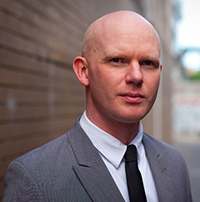 Chris Flynn is an author, editor and critic from Belfast, now based in Melbourne. His two novels are A Tiger in Eden (2012) and The Glass Kingdom (2014). His work has appeared in The Age, The Australian, Griffith Review, Meanjin, The Saturday Paper, Smith Journal, The Big Issue, The Paris Review Daily, McSweeney’s and many other publications. He is a regular presenter at literary festivals across Australia.
Chris Flynn is an author, editor and critic from Belfast, now based in Melbourne. His two novels are A Tiger in Eden (2012) and The Glass Kingdom (2014). His work has appeared in The Age, The Australian, Griffith Review, Meanjin, The Saturday Paper, Smith Journal, The Big Issue, The Paris Review Daily, McSweeney’s and many other publications. He is a regular presenter at literary festivals across Australia.
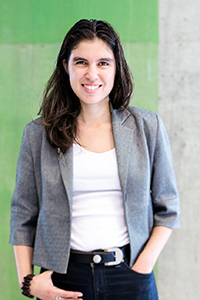
Ellen van Neerven is a Yugambeh woman from South-East Queensland. She is the author of the poetry volume Comfort Food (UQP, 2016) and the fiction collection Heat and Light (UQP, 2014) which won numerous awards including the 2013 David Unaipon Award, the 2015 Dobbie Award, and the 2016 NSW Premiers Literary Awards Indigenous Writers’ Prize. Ellen van Neerven is currently the Nakata Brophy writer-in-resident at Trinity College, University of Melbourne.
Current Fellowships
The ABR Inglis Fellowship
 The ABR Inglis Fellowship – funded though donations – honours the remarkable Ken and Amirah Inglis, whose writings and participation in Australia’s cultural and social life enriched this country. The Inglises were generous in encouraging young writers and providing them with rare opportunities. This Fellowship seeks to acknowledge that legacy.
The ABR Inglis Fellowship – funded though donations – honours the remarkable Ken and Amirah Inglis, whose writings and participation in Australia’s cultural and social life enriched this country. The Inglises were generous in encouraging young writers and providing them with rare opportunities. This Fellowship seeks to acknowledge that legacy.
What will the ABR Inglis Fellow contribute?
The chosen Fellow will contribute three review essays and/or commentaries in the field of Australia history and culture. ABR will publish these articles in print and online. Each article will be 1500 to 2000 words long. The articles will be staggered over twelve months. The Fellow will be available for media interviews and at least one event.
What will the ABR Inglis Fellow receive?
The Fellow will receive a total of $5,000, in three instalments, and will work closely with the ABR Editor, Peter Rose.
Who can apply?
Any writer aged thirty-five and under is eligible to apply: scholars, academics, journalists, commentators, creative writers, etc. Applicants must be Australian citizens or have permanent resident status in Australia. ABR staff and board members are ineligible. Contributors to the magazine are encouraged to apply. We welcome applications from First Nations writers and those with diverse backgrounds.
How to apply?
Applicants are strongly encouraged to refer to the Frequently Asked Questions section on our website. Applicants may wish to discuss their proposals with the Editor before finalising them: This email address is being protected from spambots. You need JavaScript enabled to view it.
The application should comprise a proposal of two pages plus a short CV. Applicants should summarise the following:
- their interest in the magazine and its direction;
- how their contributions will advance ABR and attract new readers;
- the likely nature/scope/genre of the three articles. (We are mindful that the Fellowship may evolve throughout the year.)
Applicants should also attach two examples of their literary journalism. Applications must be emailed to This email address is being protected from spambots. You need JavaScript enabled to view it. by 5 pm on 1 July 2024 (AEDT). There is no application fee.
Who were the Inglises?
Amirah Inglis (née Gutstadt) was a librarian, teacher, and carer for her family who wrote two pioneering studies of Papuan colonial history, the ground-breaking Australians in the Spanish Civil War, and two acclaimed volumes of autobiography. Historian Ken Inglis is best remembered for The Stuart Case, The Australian Colonists, two volumes on the history of the ABC, his monumental Sacred Places: War memorials in the Anzac landscape, Australians: A historical library, and his late work on the Dunera internees.
Familiarity with ABR
Applicants must demonstrate considerable familiarity with ABR – its style, its content, its direction. Visit our website to subscribe to print and/or digital.
Selection process
The Fellow will be chosen by a panel including ABR Editor Peter Rose. We expect to name the Fellow within four weeks of closure. No correspondence will be entered into once the decision has been announced. ABR reserves the right not to award a Fellowship in a particular round.
How can I find out about past ABR Fellowships?
Information about the previous Fellowships is available here.
The ABR Inglis Fellowship is generously funded through donations.
ABR Fellowships - Frequently Asked Questions
What is the ABR Fellowship program?
ABR Fellowships are intended to reward outstanding Australian writers, to enhance ABR through the publication of long-form journalism, and to advance the magazine’s commitment to ideas and critical debate. The Fellow will work closely with the Editor of ABR. The chosen Fellow will contribute three review essays and/or commentaries in the field of Australia history and culture. ABR will publish these articles in print and online. Each article will run from 1500 to 2000 words. The articles (agreed on with the ABR Editor) will be staggered over twelve months.
Who can apply for an Inglis Fellowship?
Any writer aged thirty-five and under is eligible to apply: scholars, academics, journalists, commentators, creative writers, etc. Applicants must be Australian citizens or have permanent resident status in Australia. ABR staff and board members are ineligible. Contributors to the magazine are encouraged to apply. We welcome applications from First Nations writers and those with diverse backgrounds.
Who can apply for a Science Fellowship?
Any writer is eligible to apply: scientists, scholars, academics, journalists, commentators, creative writers, etc. Applicants must be Australian citizens or have permanent resident status in Australia. ABR staff and board members are ineligible. Contributors to the magazine are encouraged to apply. We welcome applications from First Nations writers and those with diverse backgrounds.
How much are the Fellowships worth?
The Fellow will receive a total of $5,000.
I don’t know anything about ABR. May I still apply?
Applicants must demonstrate real familiarity with the magazine and convince the panel that their article would complement other writings in ABR and win us new readers. Applications that do not refer to the magazine, or demonstrate any awareness of ABR’s own needs and directions, are unlikely to be successful.
Are the Fellowships themed?
The ABR Inglis Fellow will contribute articles in the field of Australia history and culture. The ABR Science Fellow will contribute three reviews essays or commentaries over twelve months in the field of science and/or the history of science. This reflects the breadth of ABR’s interests and content.
Is it possible to write the article with a friend or colleague?
No. Single-author works only.
Is ABR looking for academic papers?
No. ABR is not an academic journal. We seek engaging literary journalism of the kind you will find in The New Yorker or the London Review of Books. Links to essays by past Fellows can be found here.
Are you looking for finished articles from applicants?
No. We seek cogent proposals for articles to be developed over the course of the Fellowship, in collaboration with the Editor. Unlike the Calibre Essay Prize, the Fellowship program is not for finished works.
How do I apply?
Applicants must read the guidelines of the Fellowship for which they are interested in applying and send us a succinct but comprehensive proposal (two pages maximum), plus a CV of no more than two pages. Note that we are looking for proposals – not finished articles or chapters. Applications must be received by the closing date of the relevant Fellowship. There is no application fee. Applicants are strongly encouraged to discuss their proposals with the Editor before submitting them: (03) 9699 8822 or This email address is being protected from spambots. You need JavaScript enabled to view it.
How are Fellows selected?
The Fellowship will be awarded by Australian Book Review on the advice of a committee including the Editor of ABR. No correspondence will be entered into once the decision has been announced. ABR reserves the right not to award a Fellowship during a particular round.
Are the ABR Fellows expected to complete their projects at the ABR office in Melbourne?
No. Most of the editorial contact is via email or the telephone. Some meetings may be desirable during the course of the Fellowship. These are important collaborative partnerships between the magazine and the Fellows.
What kind of editorial support do Fellows enjoy?
We edit promptly, closely, and respectfully. ABR is committed to presenting the Fellow’s work in the best-possible form. The Editor is always available to discuss the project, to respond to ideas, and to read drafts. Peter Rose edits the articles in consultation with the Fellows, and each article is then proofread by at least three editors.
Where are the Fellowship articles published?
In the print and digital editions of ABR.
Would I be required to take part in the promotion of the published article?
Yes.
2017 ABR Elizabeth Jolley Short Story Prize
Australian Book Review is delighted to announce that Eliza Robertson has won the 2017 ABR Elizabeth Jolley Short Story Prize for her story ‘Pheidippides’. Author David Malouf announced Eliza Robertson as the overall winner at a ceremony at Potts Point Bookshop, Sydney. Dominic Amerena placed second for his story ‘The Leaching Layer’ and Lauren Aimee Curtis came third for her story ‘Butter’. Subscribers can read all three shortlisted stories in the August 2017 Fiction issue. We would like to congratulate all three shortlisted entrants and thank all those who entered their stories
This year the prestigious ABR Elizabeth Jolley Short Story Prize attracted almost 1,200 entries from forty-two countries. The 2017 Jolley Prize is worth a total of $12,500, with a first prize of $7,000 and supplementary prizes of $2,000 and $1,000.
The judges also commended three stories – ‘Contributory Negligence’ by Stevi-Lee Alver (New South Wales), ‘The Man I Should Have Married’ by Catherine Chidgey (New Zealand), and ‘The Fog Harvester’ by Marie Gethins (Ireland). The commended authors each receive $850 and their stories will appear in ABR in coming months.
The 2017 Jolley Prize was judged by ABR Deputy Editor Amy Baillieu, and authors Ellen van Neerven and Chris Flynn. Click here for more information about the judges.
About the 2017 Jolley Prize shortlisted authors
Eliza Robertson studied creative writing at the University of East Anglia, where she received the Man Booker Scholarship. In 2013, she won the Commonwealth Short Story Prize and was shortlisted for the Journey Prize and CBC Short Story Prize. Her début story collection, Wallflowers, was shortlisted for the East Anglia Book Award and selected as a New York Times editor’s choice. Her first novel, Demi-Gods, comes out with Penguin Canada and Bloomsbury in late 2017.
Dominic Amerena is a writer, editor, and researcher from Melbourne. His work has appeared in The Australian, The Age, Overland, The Lifted Brow, Meanjin, The Sydney Morning Herald, The Guardian, and Vice. His short story ‘Help Me Harden My Heart’ was commended in the 2016 ABR Elizabeth Jolley Short Story Prize.
Lauren Aimee Curtis lives in Sydney where she is a PhD candidate at the University of Technology. Her work has appeared in Catapult, The Atlas Review, The Lifted Brow, Cordite Poetry Review, The Canary Press, and elsewhere. In 2014, she was runner-up in the Overland Story Wine Prize. She is currently writing a novella.
The 2017 Jolley Prize longlist
‘Contributory Negligence’ by Stevi-Lee Alver (NSW) - Commended
‘The Leaching Layer’ by Dominic Amerena (Vic.) - Shortlisted
‘Dreams of a Common Language’ by Jessica Au (Vic.)
‘A Real Man’ by Kate Blandford (US)
‘The Man I Should Have Married’ by Catherine Chidgey (NZ) - Commended
‘Thin Girls’ by Diana Clarke (US)
‘Butter’ by Lauren Aimee Curtis (NSW) - Shortlisted
‘Treading Water’ by Julie Galvin (NSW)
‘The Fog Harvester’ by Marie Gethins (Ireland) - Commended
‘A New Life’ by Anthony Lawrence (Vic.)
‘The Dark Road Home’ by Gabrielle Leago (Vic.)
‘Starry Night’ by Cara Marks (UK)
‘The Dark Ages’ by Margaret Mulvihill (UK)
‘Hinterhaus’ by S.J Norman (NSW)
‘Clementine of the Future’ by Emily O'Grady (Qld)
‘Pheidippides’ by Eliza Robertson (UK) - Winner
‘The Cry Room’ by Gaele Sobott (NSW)
‘Depths Exceeded’ by Jessica White (Qld)
Please read our list of Frequently Asked Questions before contacting us with a question about the Jolley Prize.
You may be interested in reading the shortlisted stories from previous years. More information about all our past winners is available here, along with links to their stories.
ABR gratefully acknowledges Mr Ian Dickson's generous support for the Jolley Prize.
2017 Calibre Essay Prize Judges
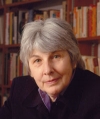 Sheila Fitzpatrick, a professor at the University of Sydney specialising in the history of modern Russia, is one of the world’s most influential Soviet historians. She is the author of two memoirs, My Father’s Daughter (2010) and A Spy in the Archives (2013). Her most recent book, On Stalin’s Team: The years of living dangerously in Soviet politics (2015), shared the 2016 Prime Minister’s Literary Award for non-fiction. Her essays and reviews appear in Australian Book Review and the London Review of Books.
Sheila Fitzpatrick, a professor at the University of Sydney specialising in the history of modern Russia, is one of the world’s most influential Soviet historians. She is the author of two memoirs, My Father’s Daughter (2010) and A Spy in the Archives (2013). Her most recent book, On Stalin’s Team: The years of living dangerously in Soviet politics (2015), shared the 2016 Prime Minister’s Literary Award for non-fiction. Her essays and reviews appear in Australian Book Review and the London Review of Books.
 Peter Rose has been the Editor of Australian Book Review since 2001. Previously he was a publisher at Oxford University Press throughout the 1990s. Rose has published several books of poetry, two novels, a family memoir, Rose Boys (2003, now a Text Classic). He published The Oxford Book of Australian Essays (1997), and his own essays have appeared in past editions of The Best Australian Essays.
Peter Rose has been the Editor of Australian Book Review since 2001. Previously he was a publisher at Oxford University Press throughout the 1990s. Rose has published several books of poetry, two novels, a family memoir, Rose Boys (2003, now a Text Classic). He published The Oxford Book of Australian Essays (1997), and his own essays have appeared in past editions of The Best Australian Essays.
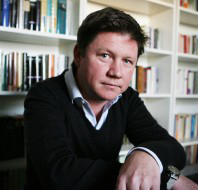 Geordie Williamson was for several years chief literary critic of The Australian. He is now the Publisher at Picador Australia. Geordie Williamson, who published his first review in ABR in 2001, won the 2011 Pascall Prize for Criticism. He edited the 2015 and 2016 editions of The Best Australian Essays (Black Inc.). He is the author of The Burning Library: Our great novelists lost and found (2011).
Geordie Williamson was for several years chief literary critic of The Australian. He is now the Publisher at Picador Australia. Geordie Williamson, who published his first review in ABR in 2001, won the 2011 Pascall Prize for Criticism. He edited the 2015 and 2016 editions of The Best Australian Essays (Black Inc.). He is the author of The Burning Library: Our great novelists lost and found (2011).
The Calibre Essay Prize
The Calibre Essay Prize is one of the world’s leading prizes for a new essay and it is now worth a total of $10,000. The Calibre Prize was first presented in 2007 to Elisabeth Holdsworth for her essay 'An die Nachgeborenen: For Those Who Come After' as part of a joint initiative between ABR and Copyright Agency's Cultural Fund. It is now generously funded by ABR Patrons.
Entries are now open for the 2025 Calibre Essay Prize.
More information about past winners and their winning essays can be found here.
Please read our Frequently Asked Questions and Terms of Conditions before contacting us with queries about the Calibre Essay Prize.
We gratefully acknowledge the long-standing support of Peter McLennan and Mary-Ruth Sindrey.
2017 Calibre Essay Prize
 Michael AdamsMichael Adams is the winner of the eleventh Calibre Essay Prize. The judges – award-winning author and historian Sheila Fitzpatrick, ABR Editor Peter Rose, and Picador Publisher Geordie Williamson – chose Michael Adams’s essay ‘Salt Blood’ from a field of almost 200 essays submitted from fourteen countries. Michael Adams receives $5,000, and his essay appears in the June–July issue of Australian Book Review.
Michael AdamsMichael Adams is the winner of the eleventh Calibre Essay Prize. The judges – award-winning author and historian Sheila Fitzpatrick, ABR Editor Peter Rose, and Picador Publisher Geordie Williamson – chose Michael Adams’s essay ‘Salt Blood’ from a field of almost 200 essays submitted from fourteen countries. Michael Adams receives $5,000, and his essay appears in the June–July issue of Australian Book Review.
‘Salt Blood’ is a remarkable and highly original meditation on freediving and mortality. On learning that he had won the Calibre Essay Prize, Michael Adams commented: ‘Winning the Calibre Essay Prize is an incredible honour, and a total surprise. I have followed ABR and Calibre for many years, and drawn much inspiration and insight from previous winners. I hope my essay highlights some hard issues: I take Rebecca Solnit’s position that we write the stories that we can’t tell anyone.’
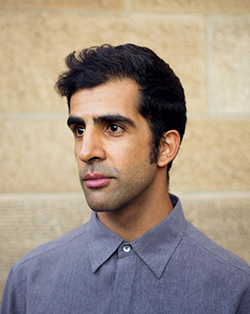 Darius Sepehri (photograph by Elena Carletti)This year ABR has added a second prize, worth $2,500. The winner is Darius Sepehri, a researcher and PhD student at the University of Sydney. His essay – entitled ‘To Speak of Sorrow’ (to be published in the August issue) – is about the many kinds of grief and their different expressions in writing and culture, as lament, testimony, or ritual.
Darius Sepehri (photograph by Elena Carletti)This year ABR has added a second prize, worth $2,500. The winner is Darius Sepehri, a researcher and PhD student at the University of Sydney. His essay – entitled ‘To Speak of Sorrow’ (to be published in the August issue) – is about the many kinds of grief and their different expressions in writing and culture, as lament, testimony, or ritual.
The judges have commended two other essays: ‘Change, We, Art’ by Meng Jin (USA/UK), and ‘Making Things’ by Sara Dowse’ (Australia), which will be published in coming issues.
Michael Adams’s winning essay is published in the June–July 2017 issue of ABR.
Subscribe to ABR Online to gain access to this issue online, plus the ABR archive (containing all Calibre Prize essays published from 2011).
Click here for more information about past winners.
Click here for more information about the judges.
We gratefully acknowledge the generous support of Mr Colin Golvan QC.
2016 Jolley Prize winner: Josephine Rowe
Announcing the 2016 Jolley Prize winner
Australian Book Review is delighted to announce that Josephine Rowe has won the 2016 ABR Elizabeth Jolley Short Story Prize for her story 'Glisk'. Ian Dickson announced Josephine as the overall winner at the 2016 Melbourne Writers Festival. Anthony Lawrence placed second for his story 'Ash' and Jonathan Tel came third for his story 'The Water Calligrapher's Women'. Subscribers can read all three shortlisted stories in the August 2016 Fiction issue. We would like to congratulate all three shortlisted entrants and thank all those who entered their stories
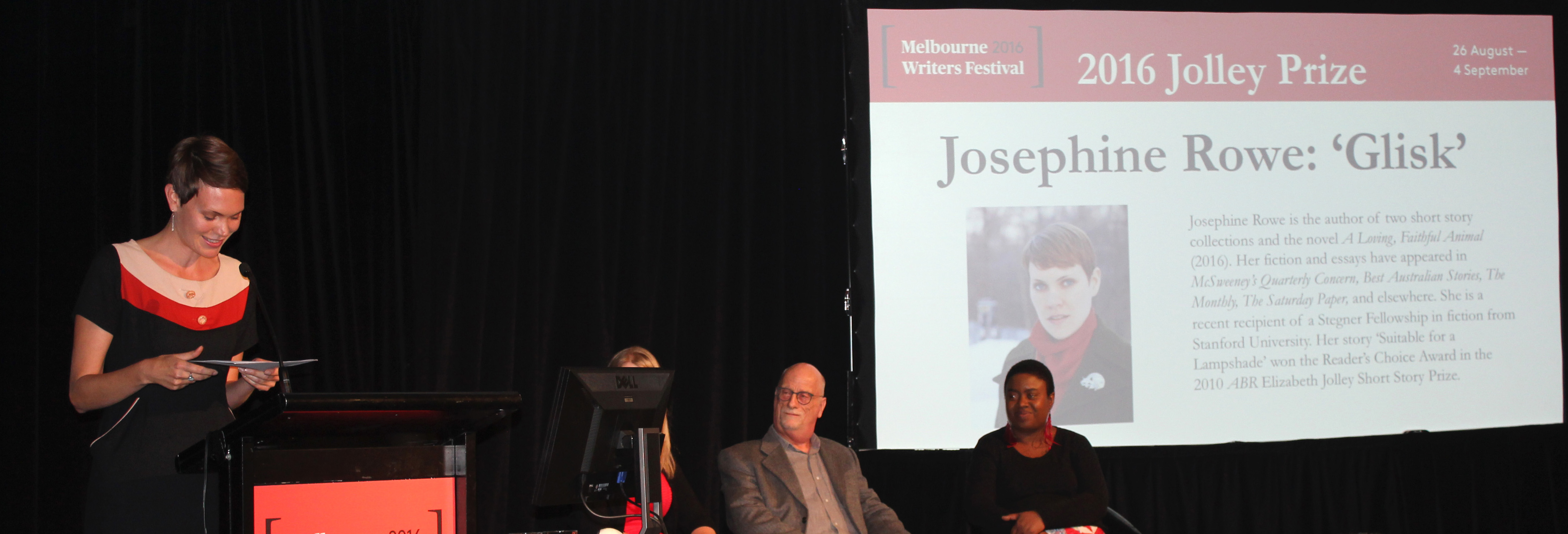 Josephine Rowe reads from her winning story 'Glisk' at the 2016 Jolley Prize ceremony at the Melbourne Writers Festival
Josephine Rowe reads from her winning story 'Glisk' at the 2016 Jolley Prize ceremony at the Melbourne Writers Festival
The ABR Elizabeth Jolley Short Story Prize is one of the country’s most prestigious awards for short fiction. This year the Jolley Prize attracted almost 1400 entries from thirty-eight different countries. The 2016 Jolley Prize was judged by ABR Deputy Editor Amy Baillieu, and authors Maxine Beneba Clarke and David Whish-Wilson.
About Josephine Rowe
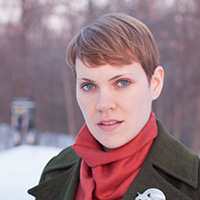 Josephine Rowe is the author of two short story collections and the novel A Loving, Faithful Animal (2016). Her fiction and essays have appeared in McSweeney’s Quarterly Concern, Best Australian Stories, The Monthly, The Saturday Paper, and elsewhere. She is a recent recipient of a Stegner Fellowship in fiction from Stanford University. Her story ‘Suitable for a Lampshade’ won the Reader’s Choice Award in the 2010 ABR Elizabeth Jolley Short Story Prize. Read her winning story 'Glisk'.
Josephine Rowe is the author of two short story collections and the novel A Loving, Faithful Animal (2016). Her fiction and essays have appeared in McSweeney’s Quarterly Concern, Best Australian Stories, The Monthly, The Saturday Paper, and elsewhere. She is a recent recipient of a Stegner Fellowship in fiction from Stanford University. Her story ‘Suitable for a Lampshade’ won the Reader’s Choice Award in the 2010 ABR Elizabeth Jolley Short Story Prize. Read her winning story 'Glisk'.
2017 Peter Porter Poetry Prize
On March 23, before a big audience at Collected Works Bookshop in Melbourne, Morag Fraser announced the two winners of the 2017 Peter Porter Poetry Prize (worth $7,500). The winners, chosen from a field of nearly 1000 entries from twenty-two countries, are Louis Klee (Vic) for his poem ‘Sentence to Lilacs’ and Damen O’Brien (Qld) for ‘pH’. The winners each receive $2,500.
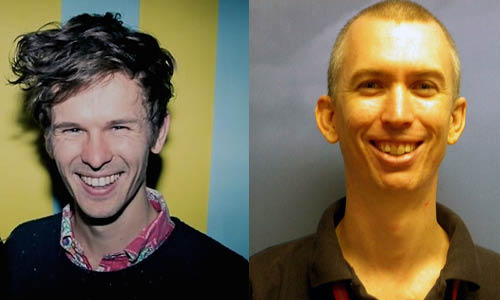 2017 Porter Prize winners Louis Klee and Damen O'Brien
2017 Porter Prize winners Louis Klee and Damen O'Brien
The other five shortlisted poets – Ronald Dzerigian (USA), Anthony Lawrence (NSW), Michael Lee Phillips (USA), Jen Saunders (NSW), and Jessie Tu (NSW) – each receive $500. The seven shortlisted poems appear in ABR’s March 2017 issue.
The judges were Ali Alizadeh, Jill Jones, and Felicity Plunkett.
ABR Editor Peter Rose commented: ‘The Porter Prize – now in its twelfth year – is dear to our hearts at ABR. Year after year it goes on generating hundreds of new poems around the world. This year’s field was by far the largest to date. We thank everyone who entered and heartily congratulate our two winners and the other five shortlisted poets.’
About the winners
Louis Klee lives in Melbourne and is currently studying in Cambridge. He has studied playwriting at NIDA and is an MFA writing candidate at the VCA. He earned a Bachelor of Philosophy at the ANU. His poetry has appeared in Meanjin, Cordite, and Gargouille, among other places, and his plays have been shortlisted for prizes such as The Silvergull Award. He is currently working on his first full-length collection of poems.
Damen O’Brien is a Queensland poet. His work has been published in Cordite and The Courier Mail, and has won or been highly commended in the WB Yeats Poetry Prize, the Nillumbik Ekphrasis Poetry Award, the Philip Bacon Ekphrasis Prize, the Ipswich Poetry Feast, and the FAW Tasmania Poetry Prize.
Please read our Frequently Asked Questions page before contacting us with queries about the Porter Prize.
Click here for more information about past winners and to read their poems.
Click here for more information about the 2017 judges.
We gratefully acknowledge the long-standing support of Ms Morag Fraser AM, and the support of ABR Patrons. The print is donated by Mr Ivan Durrant in honour of Georges Mora.
2017 Porter Prize Judges
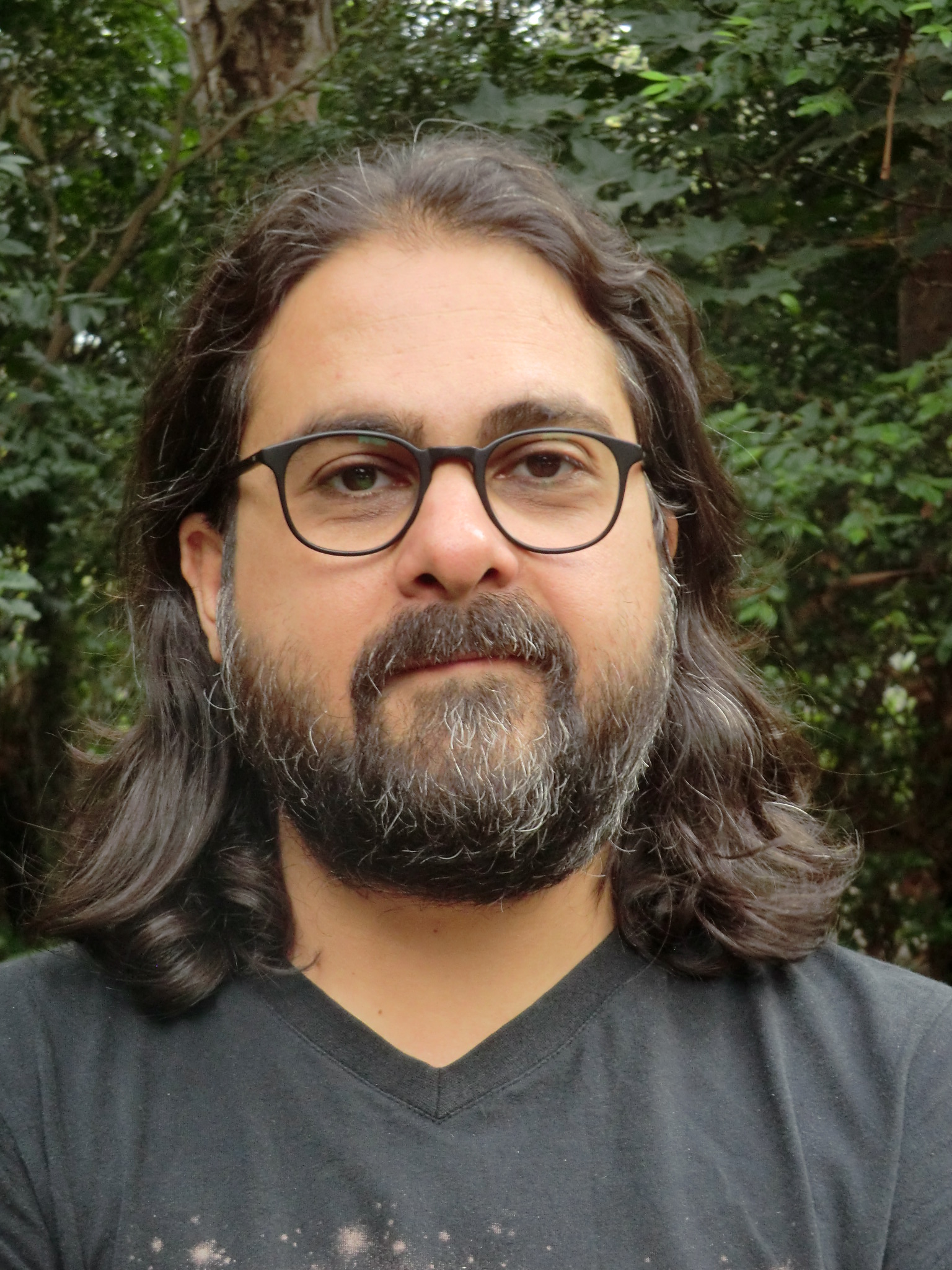 Ali Alizadeh's collection of poetry, Ashes in the Air (UQP, 2011) was shortlisted for the Prime Minister's Literary Award. His latest book, Transactions (UQP, 2013), was described as 'twisted', 'vicious' and 'remarkable'. His new book, The Last Days of Jeanne d'Arc, will be published in 2017 by Giramondo Publishing. He lectures at Monash University.
Ali Alizadeh's collection of poetry, Ashes in the Air (UQP, 2011) was shortlisted for the Prime Minister's Literary Award. His latest book, Transactions (UQP, 2013), was described as 'twisted', 'vicious' and 'remarkable'. His new book, The Last Days of Jeanne d'Arc, will be published in 2017 by Giramondo Publishing. He lectures at Monash University.
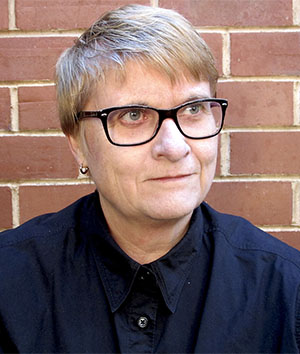 Jill Jones has published nine full-length books of poetry, including Breaking the Days (2015), The Beautiful Anxiety (2014), which won the 2015 Victorian Premier's Literary Award for Poetry, and Ash is Here, So are Stars (2012). Her work is represented in major anthologies, including the Macquarie PEN Anthology of Australian Literature (2009) and The Penguin Anthology of Australian Poetry (2009). Her poetry was included in the 2016 ABR States of Poetry anthology for South Australia. She is a member of the J.M. Coetzee Centre for Creative Practice, University of Adelaide.
Jill Jones has published nine full-length books of poetry, including Breaking the Days (2015), The Beautiful Anxiety (2014), which won the 2015 Victorian Premier's Literary Award for Poetry, and Ash is Here, So are Stars (2012). Her work is represented in major anthologies, including the Macquarie PEN Anthology of Australian Literature (2009) and The Penguin Anthology of Australian Poetry (2009). Her poetry was included in the 2016 ABR States of Poetry anthology for South Australia. She is a member of the J.M. Coetzee Centre for Creative Practice, University of Adelaide.
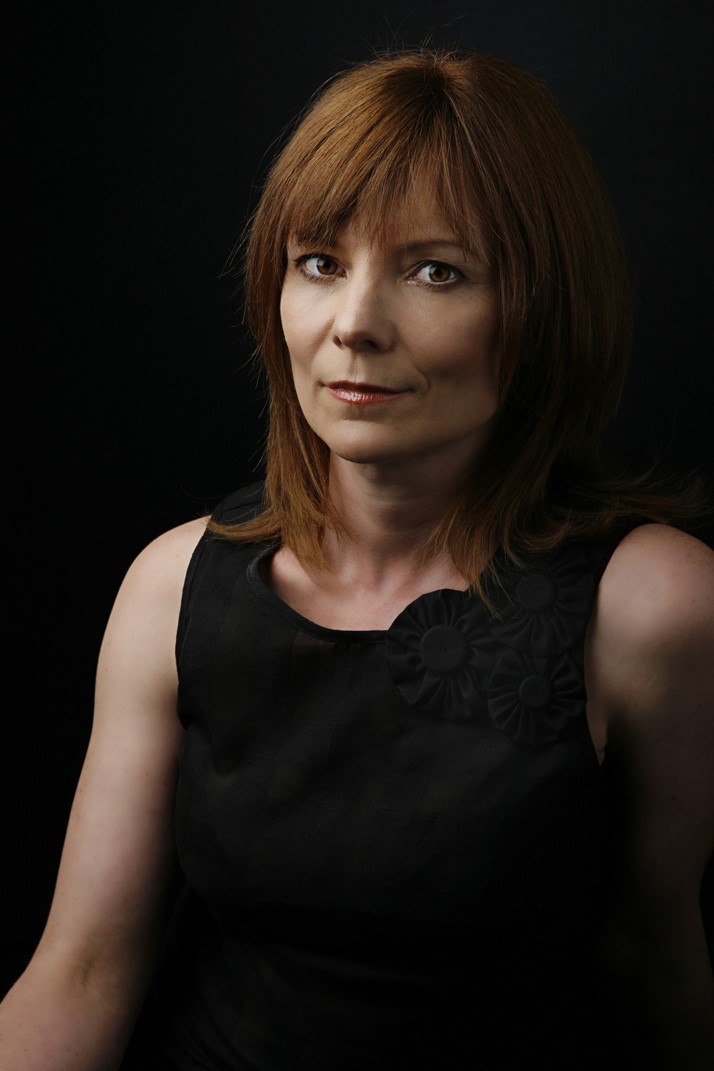 Felicity Plunkett is a poet and critic, and has a PhD from the University of Sydney. Her first collection of poetry Vanishing Point won the Arts Queensland Thomas Shapcott Prize and was shortlisted for several other awards. Felicity’s chapbook Seastrands was published in Vagabond Press’s Rare Objects series in 2011, and she is the editor of Thirty Australian Poets (UQP, 2011). She is Poetry Editor with University of Queensland Press and a widely published reviewer.
Felicity Plunkett is a poet and critic, and has a PhD from the University of Sydney. Her first collection of poetry Vanishing Point won the Arts Queensland Thomas Shapcott Prize and was shortlisted for several other awards. Felicity’s chapbook Seastrands was published in Vagabond Press’s Rare Objects series in 2011, and she is the editor of Thirty Australian Poets (UQP, 2011). She is Poetry Editor with University of Queensland Press and a widely published reviewer.
